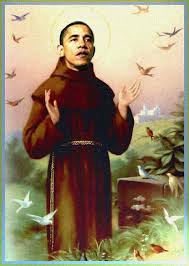
Writing on the apostate Jewish Messiah, Sabbatai Zevi, Gershom Scholem argued that there are two kinds of messianic ideas: one is restorative and the other is apocalyptic. The latter idea is, for Scholem, the most dangerous because, in imagining the new world that will emerge when the messiah comes, it appeals to a sensibility that is desirous of miracles and things that are unimaginable. It promises to, as Scholem puts it, destroy or radically alter the course of history. In this sense, it appeals to a sensibility that yearns for a violent conclusion to history, a revolutionary sensibility. Since it is so radical it will most likely, according to Scholem, lead to kind of nihilism. Scholem rightly points out that the Rabbis of the Talmud – and Moses Maimonides in particular – suppressed this idea because of its wild appeal to the imagination and its antinomian tendencies. Sabbatai Zevi and the Sabbateans who followed in his wake (and claimed to also be messiahs or harbingers of the messiah) provide him with evidence of how what he calls “messianic activism” is dangerous. (The most extreme Sabbatian, Jacob Frank suggested that the messiah will come through sin. His disciples followed him into this abyss.) What is the result of this disappointment? Scholem argued that, for Judaism, the result was nihilism and lasting damage to what he calls the “substance of Judaism,” which is moral.
In the wake of messianic failure, things get worse, not better. Reading his prognosis, one may wonder what Scholem would say about radical political movements which took on a messianic tone. To be sure, he read them in a similar manner. Radicalism which takes on a utopian aura, for Scholem, can, as he says in one text, “tear open an abyss.” But this can be read in two ways: in terms of whether they are successful or whether they are not. One need only think of the disappointments in the wake of Stalinism and Maoism (mass murder, suppression, the gulag, etc) to see this abyss in its historical reality. On the other hand, if such messianic-slash-utopian dreams are not successful, the disappointment is more immediate and the frustrations one has with history, politics, and reality will only increase.
I bring the messianic idea up now because it has – since President Obama’s election – crept into and out of American politics. One need only think about how President Obama was likened to a savior by many people in 2008. Many articles were written on this topic and people in the faith community wondered about the truth of these analogies and whether this “could be it.” To the minds of millions, he could save a lot of communities that were suffering and unite the country. Countless videos, websites, and chatrooms discussed this possibility with fervor and excited anticipation. But, as one can see today, many of these messianic expectations have not been fulfilled. And perhaps this has led – in some way – to the frustration many feel with the government and political system at this time. Perhaps this has led to a kind of nihilism and has, as Scholem might say, torn open an abyss.
Most recently, utopian messianic yearnings – here and there – seem to be coming back with Bernie Sanders. Late in 2015, The Huffington Post put out a piece about how Jesus would vote and Bernie Sanders is featured as the closest to Jesus of early Christianity. And on February 17th 2016, USA Today featured an article by Stephen Prothero which wonders whether Jesus would vote for Bernie Sanders. This query has led, in one widely circulated article, to another one (which is implicit in the first) as to how Bernie is like Jesus. In a Reddit thread from ten months ago, hundreds of comments emerged which addressed the possibility that Jesus was a socialist Jew like Bernie Sanders.
When a bird recently appeared on his podium in a rally in Portland, Oregon, people were enthralled and some have suggested that the bird was giving an omen. Although, in this meme, the messianism is displaced onto “mother nature,” it suggests that a choice has been made by a greater power. That Sanders is the one. Trump, in contrast, comes away as the anti-Christ figure (or a character that doesn’t fit into “mother nature’s plan”). This is apparent in this image and has been suggested in a more than one place (in this or that article, twitter feed, etc).

While there is no full blown messianic movement behind Sanders, the fact of that matter is that there is an enthusiasm which could draw on the messianic idea. I wonder if this is inevitable since the utopian messianic idea is connected to the idea of revolution and radical change. In hard times, there is a deep desire for radical change. And we are going through hard times now. Scholem makes sure, in his reading of the Sabbateans, to point out that the condition for the possibility of the apocalyptic messianic idea is historical. The Jews that Sabbatai Zevi appealed to were in dire straights. They wanted radical historical change. The only problem was that they were excluded from history. Their exclusion was so extreme that the belief that things could change so radically – by virtue of one man – would have to be miraculous. The promise that one man can alter the course history, to be sure, is messianic. And perhaps that is the allure of politics in America at this moment. People so radically desire change that they yearn for a President who can make things “great again” or ensure that we are all provided for and can live with assurance that we are taking care of each other.
In the face of these kinds of messianic hopes, what we need is a good dose of humor. By seeing Bernie like Larry David does (in many of his comic skits for SNL) – as a schlemiel – he loses his messianic aura and comes down to earth. The schlemiel is the everyman; he’s not Jesus. He may be a “poor schmuck,” as Larry David says, but he is a good person who only wants the best for everyone. And when he says he wants a “revolution,” there is nothing wrong with – as Larry David shows – humoring him. If we don’t humor him and laugh at attempts to divinize him, we could slip into utopian/apocalyptic yearnings. The problem is – as it was for many Yiddish writers who turned to the schlemiel – is how to address the disaster of history (with all its attendant problems of poverty, violence, fear, racism, etc) while at the same time retaining a comical distance from fantastic hopes of salvation. They all knew – from their experiences of history – that the seriousness that comes with the utopian and the messianic are dangerous. Perhaps it’s better to just shrug one’s shoulders than to think – with wild hope – that this or that Presidential candidate can save us, alter the course of history, and create a new world (America) unlike any we have seen before.
In dark times, hope is important. But wild hope – with a messianic utopian flavor – may have either an apocalyptic or nihilistic ending. In America it’s not a question of whether all our dreams can come true but which dreams. The schlemiel Larry David portrays in his imitation of Bernie Sanders may talk revolution and dream big but he also seems to be happy with the small things. Perhaps we should be, too. Because big dreams can sometimes have big consequences.

Reblogged this on jewish philosophy place and commented:
Another excellent post by Menachem Feuer, this one on Sanders, the messianic, and, of course, the schlemiel.
To be free of messianism is itself a messianic hope, and a lack of dreams has dark consequences too
I agree. The schlemiel is somewhere in the middle.